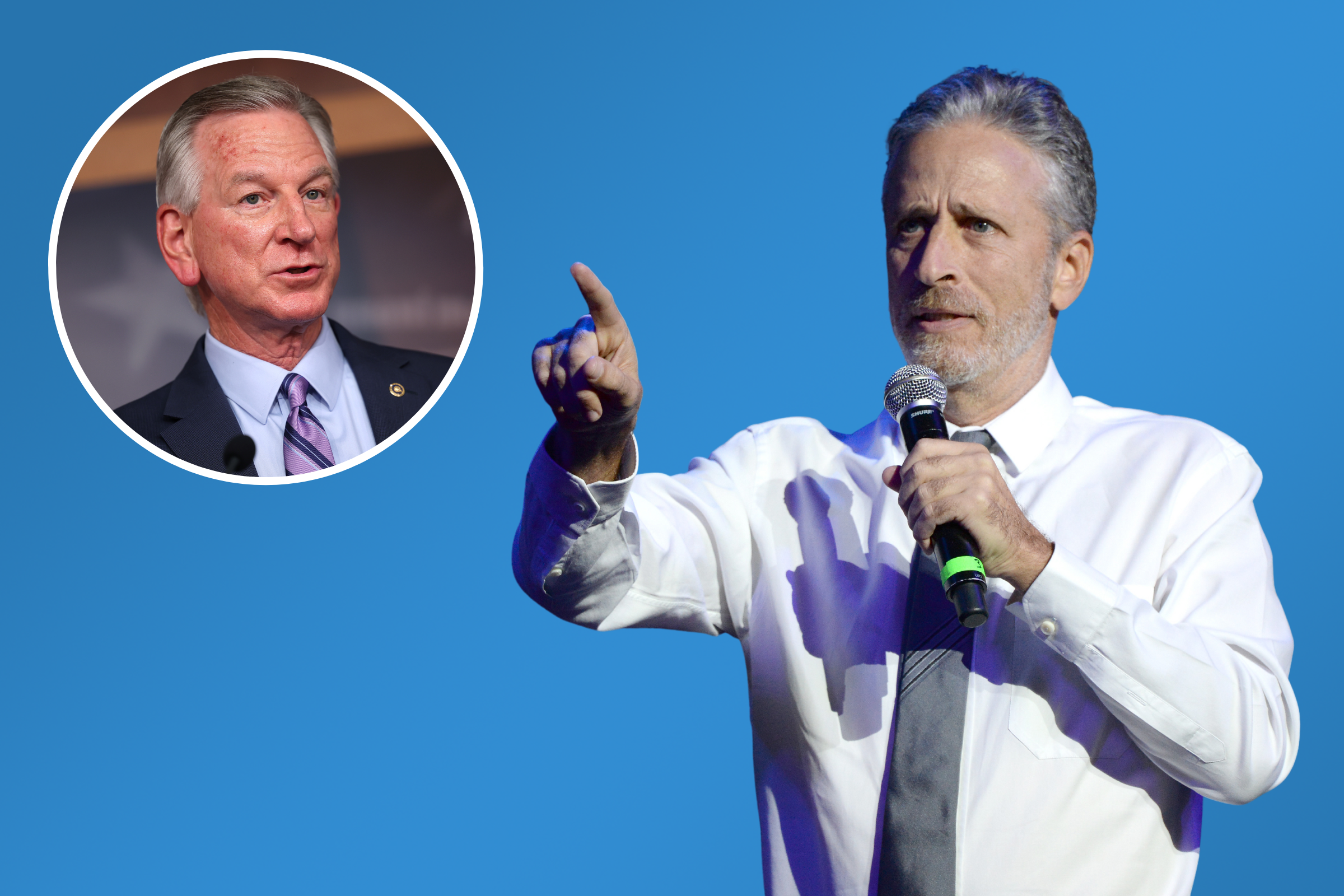Though it has a hundred years of automotive history backing it, Ford Pro is very much a startup in Ford Motor Company's business ecosystem. Ford Pro is more than just vehicles, it's a multi-prong solution for commercial fleets.
Companies, including Ford, have been in the commercial fleet business for years, selling everything from police cars to delivery vans to rugged trucks. But, those vehicles have traditionally been powered by gasoline and diesel engines.
"Commercial electrification [was] not even started really, when we started this couple years ago," Ford Pro CEO Ted Cannis told Newsweek, dialing in during a trip to New York City.
It all started with the introduction of Ford Pro's suite of commercial fleet services. Software, service, financing, charging and vehicles come together under an umbrella designed to create an ecosystem for owners.

The first vehicle introduced, in November 2020, was the Ford E-Transit van. In May 2021 came the Ford F-150 Lightning Pro, a low-cost, purpose-built pickup truck. The new Ford Super Duty pickup truck will be added to the roster later this year.
The success of Ford Pro is measured in units sold and number of subscribers, and there are plenty of those. Cannis says that the company has sold over 20,000 commercial electric vehicles so far this year. That's nearly five times as many models as MINI has sold in the U.S. in 2023.
"Here in North America, we're at 50 to 55 percent of the [market] share. In Europe, we're 55 percent of the share of those segments, far more than anybody else in the business. And that was with a late start in Europe," Cannis said.
About 40 percent of the customers Ford Pro is serving are small businesses with less than 25 vehicle sales. That doesn't mean that the company isn't competing for bigger business. The New York Police Department, PepsiCo, and the California Van Authority are on the quick list of clients Cannis can name off the top of his head.

"Here in New York, they're [Frito-Lay, a subsidiary of PepsiCo] doing a 'Run on Less' program where they run the Queens distribution center with 60 [electric] Transits." Frito-Lay has also rolled out electric van deliveries around their Dallas, Texas home base.
A recently-announced deal for 403 E-Transits was struck with the California Van Authority. The Authority intends to use the 9- and 12-passenger vans in 32 farming communities. They were upfitted by Forest River Bus to be customized to meet route needs, including ADA compliance and room for passenger bags and tools.
When it comes to the company's commercial business, it faces stiff competition in Europe where Mercedes, Volkswagen and other electric van sales players are staking their claim. The U.S. electric van market is primed for the E-Transit where Rivian is the only real competition until the Mercedes eSprinter and Ram's new electric ProMaster come out later this year and into next.
Amazon and Merchant's Fleet have already committed to the Ram model orders have just opened for the Merc.

The commercial electric truck business in the U.S. has far less competition. "The other guys are not very focused on work trucks," Cannis said, "We actually in the US have 91 percent share of the electric pickup business in the in the commercial segment." The Chevrolet Silverado EV will come in a Work Truck version.
Ford Pro boasted 450,000 software subscriptions at the end of the second quarter of 2023, up over 60 percent from a year ago. The company's software works with models other than Fords, as well as Fords, to create an ecosystem of fleet technology and knowledge for operators and owners so they don't have to take the traditional multi-vendor approach.
"We're seeing more and more customers getting connected with solutions, particularly for the small and medium fleets that are really underserved. And, because we have that massive physical footprint of dealers and customers in our specialized commercial centers, we can reach these customers and link digital and physical services," he said.
It's not just their customers. Learning has happened on the Ford side as well, especially surrounding the commercial truck rental business. "The easiest solution, and the most optimal solution for getting cost of ownership [down] is when the customer can control their charging ...If you're renting it to somebody, that somebody has to find charging and often isn't investing in their own charging solution.

So, they're a bit more dependent on what's available around them in the public charging network, the available of the chargers in that even though we have our roaming plan, it's not it's not the same everywhere."
Ford Pro and the companies they sell to also had to learn how to deal with employees who don't own their own homes. "They're in a rental property or a multi-unit unit dwelling ... charging solutions for the employee may not be an option," Cannis said.
If there is one element of the Ford Pro business relationship that has surprised Cannis it is the slow pace at which corporations and governments move. Companies can't just wing it.
"The process to go through the math, pick chargers, get the incentives, schedule your utility companies; maybe sometimes the departments are different, the one buying the vehicles is one, the one buying the infrastructure and the chargers in the building is another ... It wasn't so much hesitancy, it was time to implement it was longer than we expected," Cannis divulged.
Ford Pro has adapted its training to better meet up with these client practices.

If Ford Pro was ever fledgling out of the gate, it was because Ford, and the greater auto industry itself, was experiencing issues related to the semi-conductor chip shortage.
This year, the company began reporting its own financials, splitting from under the Ford umbrella. "Profits are up significantly. We reached $3.8 billion so far this year, up from $1.4 billion for the first half versus a year ago. So substantial increases in profitability [and] the margins are up," Cannis shared.
"Ford is in a much better position today in regards to the chip supply crisis, and their production levels generally reflect that," Ed Kim, president and chief analyst at AutoPacific told Newsweek.
"It has been a difficult road for Ford getting to this point. During the course of the pandemic and resulting chip shortage, Ford's commercial business, Ford Pro, suffered at a time when demand for commercial vehicles didn't crater as expected. Had it not been for the chip shortage, commercial vehicle sales would likely have far exceeded Ford Pro's sales performance through that time period."
The future for Ford Pro is bright. It has just launched a second-generation charger that was developed in very short order to include some big asks from clients.

"Cords occasionally get battered," Cannis said. The first-generation charger was "rip and replace" as the CEO describes it. If the cord became unusable, the entire unit was rendered useless and needed to be fully replaced.
The cord for the second-gen charger is replaceable. Ford is also backing the unit with a three-year warranty. Other changes include optimizing for temperature ranges and increasing connectivity. Ford is offering Wi-Fi, Ethernet or cellular connectivity on the industrial-grade charger. It also has an RFID exposure to ensure only authorized people at a business are using the charger.
Making those changes in a few short years isn't easy. Ford leveraged its industrial capability for technical purchasing and looked for quality and cost opportunities to get the charger on sale in a quick fashion based on client feedback.
"As chip supply continues to improve, Ford Pro's outlook is considerably rosier compared to the pandemic years," Kim said. "While there remains the possibility of a recession (though we are cautiously optimistic that a recession is becoming a more distant scenario), there is pent-up demand for replacement commercial vehicles as the nation emerges from the pandemic years.
"As Ford Pro is such a force to be reckoned with in the commercial vehicle market, expect continued strong investment in product, particularly in electrification. If anyone can get commercial customers on board with EVs, it's likely to be Ford Pro."
Uncommon Knowledge
Newsweek is committed to challenging conventional wisdom and finding connections in the search for common ground.
Newsweek is committed to challenging conventional wisdom and finding connections in the search for common ground.
About the writer
Eileen Falkenberg-Hull leads the Autos team at Newsweek. She has written extensively about the auto industry for U.S. News & ... Read more
To read how Newsweek uses AI as a newsroom tool, Click here.





